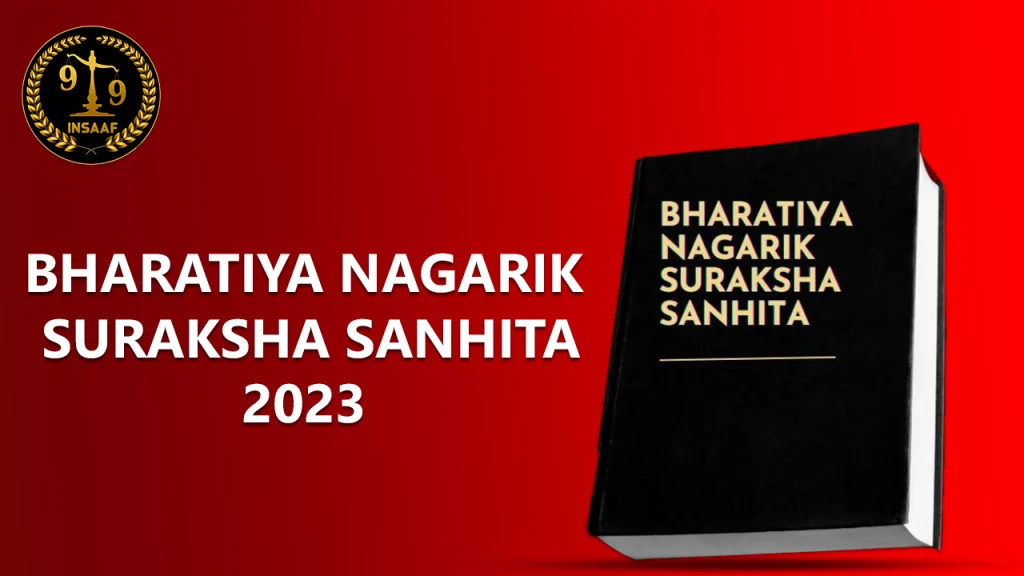
In a key development of the Indian legal system The Bharatiya Nagarik Suraksha Sanhita, 2023 (BNSS) is Introduced, it is a replacement of The Code of Criminal Procedure, 1973 (CrPC) a procedural law established for the administration of the Indian Penal Code, 1860 (IPC).
Bharatiya Nagarik Suraksha Sanhita, 2023 shows the nation’s commitment to enhancing citizen protection and ensuring a fair and efficient judicial process by modernizing and streamlining procedures for criminal investigations, trials. Through BNSS the Indian government looks to address the challenges of criminal investigation in the modern era. In this article we aim to explore the new Criminal Procedure Code Bharatiya Nagarik Suraksha Sanhita, 2023.
What was the Criminal Procedure Code (CrPC)
The CrPC is a legal framework that governs the procedure for investigation, arrest, prosecution, and bail for offenses. It was first passed in 1861 to address the problem of multiplicity of legal systems in India. However, with times there was a need felt for the change as CrPC the provision of CrPC was not found adequate to address challenges faced in criminal investigation during the modern times. There was a need felt to incorporate science and technology for better investigation and conclusion which led to the introduction of BNSS.
Key Amendments and Provisions
Bharatiya Nagarik Suraksha Sanhita aims to fill the gap and close any loophole left by CrPC by amending and using technology.
Victim-Centric Approach: The new legal framework takes an approach of securing the rights of victims making sure they get timely assistance, support and requital.
Expeditious Trials: The new legislative framework has introduced a strict timeline for every stage of the legal process such as completion of investigation, filing of chargesheet and hearing by sticking to strict timelines it aims to expedite the trial procedure in a timely manner.
Digitalization and Transparency: BNSS takes forward the digital India initiative and encourages the use of technology in legal processes including filing of complaints, electronic evidence submission, and virtual court proceedings.
Enhanced Protections for Vulnerable Groups: BNSS aims to provide protection for the people of vulnerable groups, by making sure that they are treated fairly and they get support and access to legal resources without any discrimination.
Restorative Justice Mechanisms: The Bharatiya Nagarik Suraksha Sanhita looks to incorporate restorative justice systems with its victim centric approach, so it is not only focused accountability and punishment but also focuses on transformation.

Implications and Benefits:
- For any criminal offense where the punishment is 7 years or higher the BNSS mandates for forensic investigation taking a scientific approach for evidence collection and analysis for better judgment.
- It allows the use of digital communication for court proceedings, even considering digital evidence for the criminal investigation or trial. For example
- Verdict within 30 days after the conclusion of arguments, with the option to extend the period to 60 days.
- Updating on the investigation’s progress to the victim within 90 days
- Framing of charges by a sessions court must occur within 60 days from the initial hearing on said charges.
- BNSS outlines stricter timelines for investigation and other legal processes; it aims to reduce the time taken for trials by including digital means.
- The new legal framework BNSS allows conduction of trial in the absence of the accused, if the accused absconded with the intention of evading the trial.
- The BNSS allows the use of voice samples for the purpose of investigation apart from handwriting specimen and signature.
- One of the issues with BNSS which can lead to the denial of bail during judicial custody is it allowing 15 days of 15 days of police custody. It allows 15 days of police custody in parts during the judicial custody of 60 to 90 days, in case 15 days are not exhausted the accused can end up not getting bail during the whole period.
Conclusion: Bharatiya Nagarik Suraksha Sanhita, 2023 is a reformative legal framework and it aims to bring in the provisions which are required to meet the requirements of the contemporary world. It is a step forward towards modernization with the use of technology and scientific approach. It aims to move forward towards better analysis & evidence collection ensuring a fair, efficient, and evidence-based approach to criminal proceedings. By plugging the loopholes and incorporating digital technology and putting stricter timelines it aims to reduce the backlog and provide justice in a timely manner.
Frequently Asked Questions (FAQs) about the Bharatiya Nagarik Suraksha Sanhita, 2023
What is the Bharatiya Nagarik Suraksha Sanhita, 2023?
Bharatiya Nagarik Suraksha Sanhita aims to fill the gap and close any loophole left by CrPC by amending and using technology. It is a replacement of The Code of Criminal Procedure, 1973 (CrPC) a procedural law established for the administration of the Indian Penal Code, 1860 (IPC).
How does the Bharatiya Nagarik Suraksha Sanhita, 2023, benefit citizens?
The Bharatiya Nagarik Suraksha Sanhita, 2023, allows the use of digital communication for court proceedings, even considering digital evidence for the criminal investigation or trial. For example, seeks expedition of trial with stricter timelines and take victim centric approach.
Is the Bharatiya Nagarik Suraksha Sanhita, 2023, applicable nationwide?
Yes, the Bharatiya Nagarik Suraksha Sanhita, 2023, is applicable across India and aims to standardize legal procedures and protections for citizens throughout the country.

 CALL NOW +91 – 8800110989
CALL NOW +91 – 8800110989 





